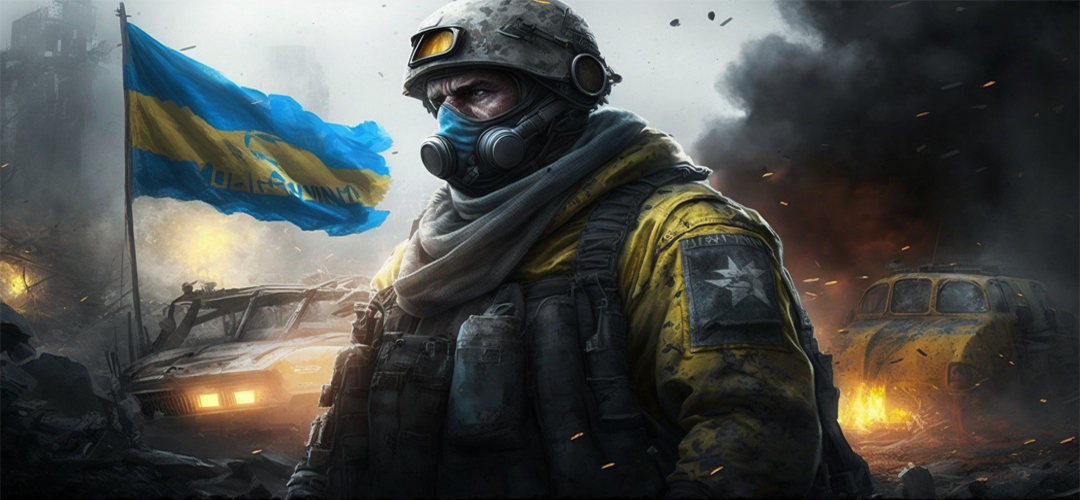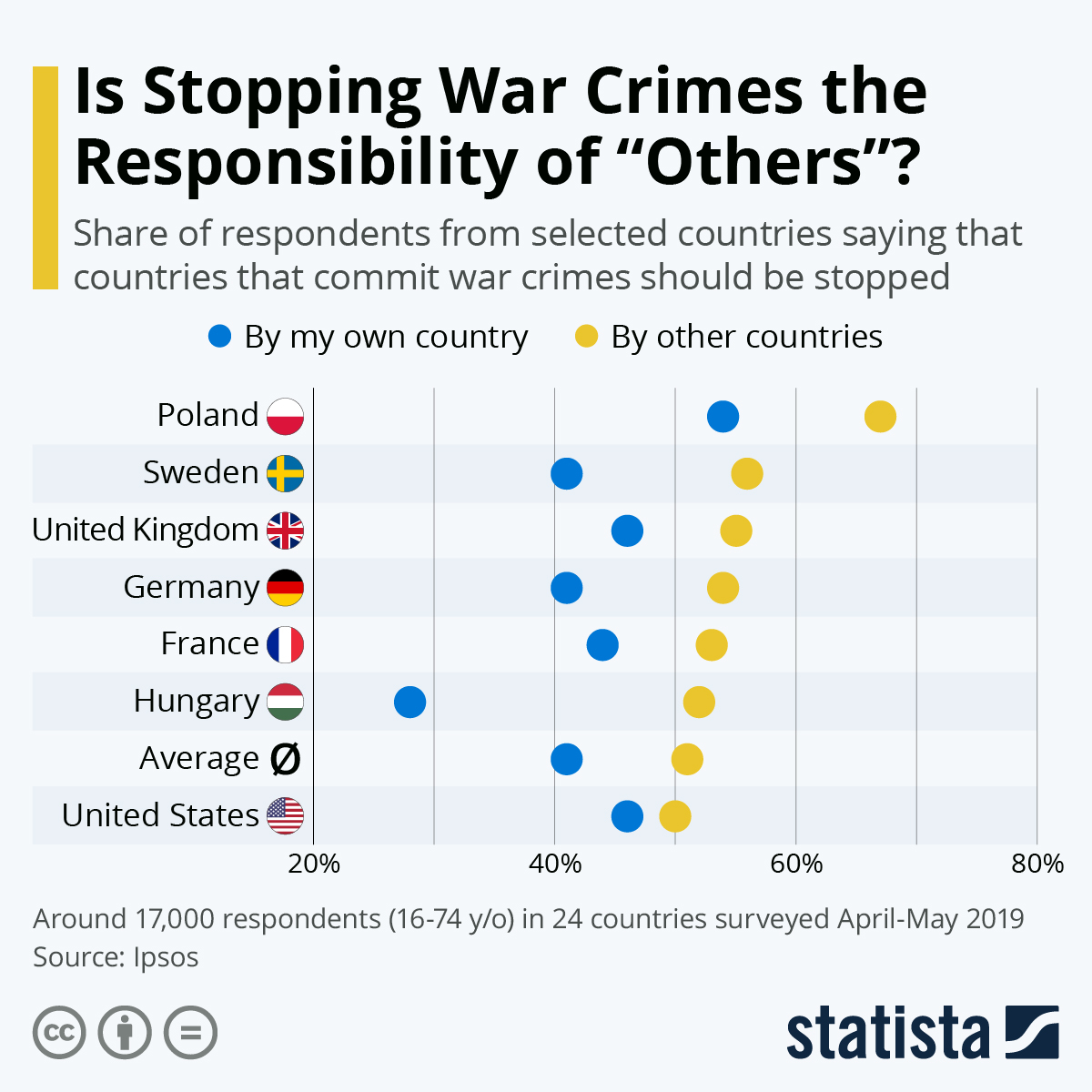War Crimes in Ukraine?
March 18, 2023 | Expert Insights

In the first week of March, the European Commission established the International Centre for the Prosecution of the Crime of Aggression against Ukraine (ICPA), a first step towards a special tribunal. The Lviv "Together for Justice" Conference decided on the new ICPA, which is intended to cover the loopholes in the International Criminal Court's (ICC) prosecution efforts.
The Centre, next to the International Criminal Court in The Hague, will preserve evidence and prepare the prosecution for future trials to hold Russia accountable for its crimes in Ukraine. The Centre would not be operational immediately, but its "building blocks" may take months to get together.
Background
Russia though not a member of the ICC (President Putin withdrew in 2016), as one of five permanent veto-wielding members of the Security Council, is in a position to undoubtedly veto any referral to the International Criminal Court. The Ukrainian government is reasonably anxious that Russia cannot be prosecuted by the International Criminal Court for its aggression, as the ICC can only hear cases in which both the plaintiff and the defendant are members of the Court or if the UN Security Council refers a case.
In April of last year, the Commission announced several measures to encourage impartial investigations of war crimes committed by both sides in Ukraine. Whether the offences should be prosecuted by the International Criminal Court or a specialised tribunal has not yet been decided. The International Criminal Court has the authority to prosecute the gravest international crimes, including war crimes, crimes against humanity, and genocide.
Russia, like many other countries (the U.S., China, Israel and even India, amongst many others), has rejected the jurisdiction of the International Criminal Court, which means they will likely not submit to any prosecutions filed by the ICC. The ICPA is intended to remedy this void by providing a venue for prosecuting Russian aggression crimes such as torture, mistreatment, sexual violence, and summary executions.
In 2022, a joint investigation team was established in The Hague, where the ICPA will be housed. Lithuania, Poland, Ukraine, and the European Union Agency for Criminal Justice Cooperation make up the team (Eurojust). The investigation team amended their original agreement to establish the ICPA. Although aggression is a crime committed by the highest political and military leadership, it seems unlikely that the International Criminal Court (ICC) will be able to prosecute it. As a result, the Centre was founded as a crucial first step, presumably towards forming a special tribunal.

Analysis
The Organisation for Security and Cooperation in Europe's Office for Democratic Institutions and Human Rights (OSCE/ODIHR) published an interim report last July that included preliminary findings and recommendations regarding violations of laws that may constitute war crimes and crimes against humanity, committed primarily by Russia and to a lesser extent by Ukraine. Russia's long list of documented violations includes indiscriminate strikes on civilian targets, cruel sieges of cities as a warfare strategy, and the employment of weapons having wide area impacts in densely populated regions. Since then, the list of indiscriminate assaults against civilian targets and infrastructure has increased in frequency and severity.
The report discussed sexual violence against women, extrajudicial executions of civilians, unlawful treatment of prisoners of war, suppression of peaceful protests in occupied cities, impediments to the delivery of humanitarian aid and forced deportations of civilians to Russia or the so-called People's Republic republics in Donbas. Since Russia's invasion began on February 24, 2022, the Ukrainian Institute for Civil Liberties has documented more than 34,000 incidents. Often, war criminals are brought to justice after a losing side is compelled to give them up to an international war crimes tribunal. This occurred following the defeat of Nazi Germany in World War Two at the infamous Nuremberg trials.
There were no international conventions outlawing genocide at the time, and countries were "free" to conduct enormous atrocities against their own populations. Crimes against humanity, defined as war crimes committed on a massive scale against civilians, were only included retroactively to the laws of the Nuremberg tribunals. In October 1946, the Nuremberg verdict did not mention genocide. The Rome Statute of the International Criminal Court outlines four fundamental international crimes: genocide, crimes against humanity, war crimes, and aggression. Several of Russia's alleged acts could contain elements of genocide, such as the deportation and re-education of children and the public assertions of intent to destroy Ukraine as a nation.
The legal issue is that the International Criminal Court's jurisdiction over the crime of aggression is confined to State Parties that have signed the Rome Statute. Russia and Ukraine are not parties to the Statute. While only Ukraine has accepted the Court's jurisdiction, Russian nationals cannot be held accountable before the ICC for the crime of aggression. The United Nations Security Council could extend the Court's jurisdiction by referring the aggression against Ukraine to the Court. But Russia would veto such a request in the Security Council.
The offence of aggression is the origin of all other offences. Without the aggression against Ukraine being established, the other crimes listed in the Rome Statute would not have been committed. Under the recommendation of the UN General Assembly, an agreement between Ukraine and the United Nations can establish a special court for the crime of invasion. This tribunal could be particularly effective since it would target a limited group of political leaders and military commanders for a specific offence.
Assessment
- Sanctions and a persistent influence operations campaign have singularly failed to rein in Mr Putin's irrational war in Ukraine. Desperate to seek an end to the fighting, with U.S. and its allies bleeding billions in aid to Ukraine (with hundreds more needed to rebuild the devastated nation), the west is ratcheting up pressure on Moscow by setting up the tools for a post-war prosecution of Mr Putin and his aides. However, this could backfire, making the Russians fight harder to achieve a measure of victory so that peace negotiations can be on their terms. After all, no victorious nation has ever been tried for war crimes!
- Theoretically, ICPA could be the first step in the formation of a full-fledged special war crimes tribunal at a future date to try Mr Putin and his generals. However, in reality, this would be feasible only if the defeat of Russia was as comprehensive as it was in the case of Serbia in Kosovo or of Nazi Germany in 1945. If the war ends in a stalemate, and Mr Putin remains firmly in power, the ICPA would be as toothless as the ICC, which has only succeeded in punishing weak and insignificant African and isolated Serb leaders to date.
- The important issue is that the ICPA should not be a one-sided affair as the war crime trials that took place after World War II eventually turned out to be.








Comments